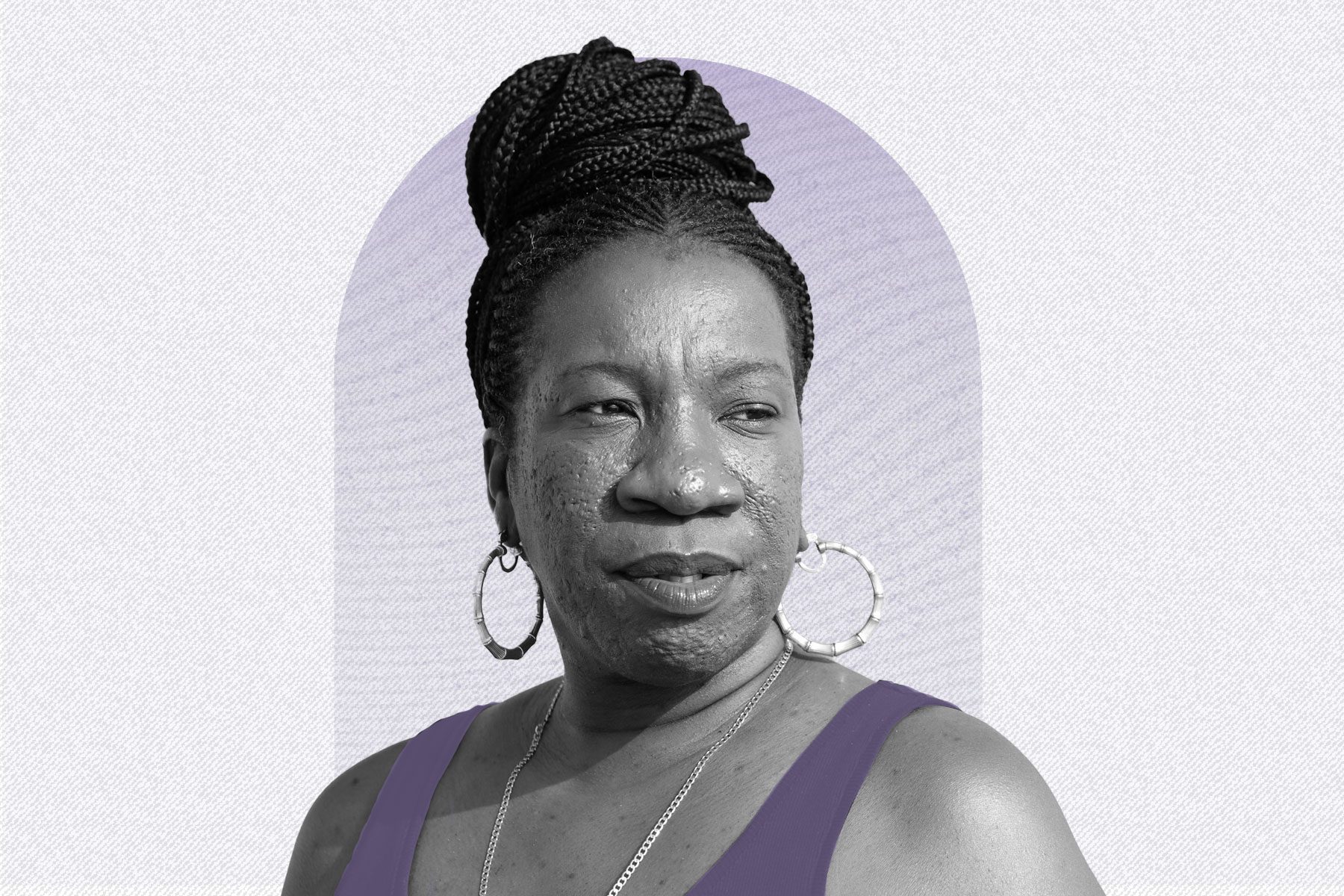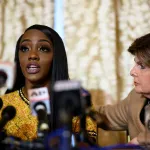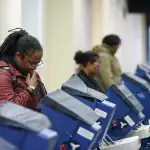Five years ago this month, the #MeToo movement evolved into a global phenomenon after a bombshell New York Times story revealed sexual harassment allegations against powerful Hollywood executive Harvey Weinstein.
But a viral tweet from actor Alyssa Milano, who used the hashtag to raise awareness about the prevalence of sexual violence against women, was not the beginning of the movement. More than a decade earlier, activist Tarana Burke, herself a survivor of sexual assault, first used “Me Too” on social media.
I’ve covered Burke often over the past five years, and while she has weighed in on various interpretations of what progress can mean, she’s also looking to reframe how the country assesses the state of #MeToo.
Anniversaries tend to be a time to reflect, to take stock of the work done and left undone. The #MeToo movement has seen victories and losses in the courtroom, boardrooms, and across institutions from government, to sports, business to media and entertainment. Weinstein himself was convicted of assault and rape in 2020 and now is back in a courtroom facing his accusers.
At this pivotal moment for our democracy and society, I wanted to talk to Burke as the founder of the movement about what she sees as its impact, how the country measures progress and justice around these issues, and the work ahead for her and for our society. (You can watch our full conversation below.)
Most Americans now believe the #MeToo era has made accountability more possible for workplace sexual harassment and assault.
Reducing people’s lives to achievements like passing laws or winning in court misses the point, Burke said. Most surprising to her as a sign of progress? The shift in how survivors and their stories have been centered — and the impact that has made on people who may have never been victims of sexual violence but are now more able to empathize with those who have.
“The way I have been trying to help people frame this is to think about what #MeToo has made possible,” Burke said. “We could not have a sustained global conversation about the breadth and depth of sexual violence five years ago … We talk about things like healing. We have people who have survived sexual violence who have space to tell their stories, who have found safety in community they thought they would never experience.”
Some people want to judge the movement on specific outcomes, so when a case is overturned, Burke said, “people are like, ‘Oh the #MeToo movement has failed.’” Instead, she said, such outcomes are proof of the difficulty of the work.
“It’s not about the failure of the movement; it’s the failure of the systems,” Burke explained. “These systems are not designed to help survivors, they’re not designed to give us justice, they’re not designed to end sexual violence.”
“When we bind ourselves to the outcomes of these cases, we are constantly up and down with our disappointment, our highs and lows,” Burke continued. “What they tell us is just how much work we need to change the laws and the policies but most importantly, to change the culture that creates the people who commit, who perpetrate acts of harm.”
The #MeToo era has also intersected with other major cultural phenomena in our country — a racial reckoning, a pandemic that kept millions of Americans at home for school and work, and the Supreme Court’s decision to end federal protections for abortion.
Burke is a Black woman who started this movement largely to sound the alarm about the racially disparate impact of sexual violence, work she has been doing for decades. But the current era that has exposed long-standing racial inequities — in justice, in health care, in all facets of society — has also created an opportunity to highlight #MeToo as a social justice issue impacted by these factors that can never be about one case or verdict.
Burke said that while she is far less often overlooked as the founder of #MeToo than when the hashtag went viral five years ago, it’s still difficult to get people to talk directly about the intersection of race and sexual violence.
“Literally, we’ll talk about me as if I’m translucent and abstract but won’t talk about Black women,” she said. “Everywhere I go, there’s no place I go, there’s no room I go into that I don’t bring myself as a Black woman and Black women with me. … I always mention Black women, I always mention Native women in particular because of just how expansive the problem is in our community.”
Headed into the 2020 presidential election, I spoke to Burke about her #MeTooVoter campaign to mobilize survivors at the ballot box. Questions of bodily autonomy are supercharged this year in the wake of the Supreme Court’s decision ending a federal right to abortion.
Ahead of next month’s midterms, she said she’s thinking more than ever about survivors as a key part of the electorate. They can be a powerful voting bloc that could help elect candidates focused on changing policy around sexual and gender-based violence, she said.
“People deal with survivors from a place of pity all the time: ‘Oh, I’m so sorry that happened to you. Oh, you poor thing,’ as, opposed to from a place of power,” Burke said. “Once you organize people around the idea that they are powerful and they have strength, there’s no really turning back from that. People don’t respond to our trauma and they don’t respond to our tears — they’re going to respond to our strength.”
Centering survivors also means expanding understanding of the various forms of sexual violence. Burke shared that her organization is also focused on the issue of consent in the disability and neurodivergent communities.
“It was really important for us to make sure we just did not leave folks out,” Burke said. “As we expand the conversation around consent in general, there’s this real big movement around codifying consent. Part of it is about codifying consent into law, but I think it’s about codifying consent culturally. If we have a universal understanding of what (consent) is, it can be communicated across college campuses and schools and as we talk about it when we do training and things like that.”
Burke now has a global platform that she is using to make space for new leadership with fresh perspectives on the work ahead. At 49, she’s also looking back at how the work and her approach have changed.
“Prior to #MeToo going viral, quite honestly, I would’ve been dreaming smaller,” Burke said. “I just didn’t understand where we could go. Now, I really feel like the sky’s the limit.
“My job is to move the needle as far as I can in my lifetime and pass the baton,” she said. “I don’t want to be the old head trying to get young people to do things my way. I think the future of this work is young people right now who are watching me make mistakes.”
The five-year mark is also an opportunity for the rest of society to consider where we go from here, and what the collective work of communities is around issues of sexual harassment and assault. At a time when survivors are finding strength in sharing their stories, what does it mean to translate that into power at the polls? With policy? What can accountability look like long before accusers take the witness stand?
How the rest of us talk about sexual violence and how it intersects with power and race and disability will be the work of the next five years and beyond. Movements have always had moments of setbacks and success. #MeToo is no different, but this time can inform the next era, new voices and future changemakers. Making our country safer requires more of us to also say #MeToo — that we are willing to push back against a society and systems that make anyone less free and less equal.






